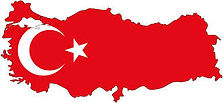
Robert Fallon
• Musicologist
Books and Book Projects
Focusing on Messiaen’s relation to history - both his own and the history he engendered - the Messiaen Perspectives volumes convey the growing understanding of his deep and varied interconnections with his cultural milieux. Messiaen Perspectives 1: Sources and Influences examines the genesis, sources and cultural pressures that shaped Messiaen’s music. Messiaen Perspectives 2: Techniques, Influence and Reception analyses Messiaen’s compositional approach and the repercussions of his music. While each book offers a coherent collection in itself, together these complementary volumes elucidate how powerfully Messiaen was embedded in his time and place, and how his music resonates ever more today.
Messiaen Perspectives 1 and 2

Messiaen Perspectives 1: Sources and Influences presents many new primary sources, including discussion of Messiaen’s birdsong cahiers, sketch and archival materials for his Prix de Rome entries and war-time Portique, along with performance practice insights and theological inspiration in works as diverse as Visions de l’Amen, Harawi, Timbres-durées and the organ Méditations. The volume places the composer within a broader historical and cultural framework than has previously been attempted, ranging from specific influences to more general contexts. As a centrepiece, the book includes an examination of the impact of one of the greatest influences upon Messiaen, Yvonne Loriod.
Contributors: Julian Anderson, Yves Balmer, Stephen Broad, Christopher Dingle, Robert Fallon, Laura Hamer, Peter Hill, Lucie Kayas, Anne Mary Keeley, Hugh Macdonald, Christopher Brent Murray, Sigune von Osten, Caroline Rae, Philip Weller.

Messiaen Perspectives 2: Techniques, Influence, and Reception
co-edited with Christopher Dingle
Ashgate, 2013
Messiaen Perspectives 2: Techniques, Influence and Reception explores Messiaen’s imprint on recent musical life. The first part scrutinizes his compositional technique in terms of counterpoint, spectralism and later piano music, while the second charts ways in which Messiaen’s influence is manifest in the music and careers of Ohana, Xenakis, Murail and Quebecois composers. The third part includes case studies of Messiaen’s reception in Italy, Spain and the USA. The volume also includes an ornithological catalogue of Messiaen’s birds, collates information on the numerous ‘tombeaux’ pieces he inspired, and concludes with a Critical Catalogue of Messiaen’s Musical Works.
Contributors: Anne-Sylvie Barthel-Calvet, Jean Boivin, Roderick Chadwick, Christopher Dingle, Robert Fallon, Germán Gan-Quesada, David Kopp, Christoph Neidhöfer, Marilyn Nonken, Raffaele Pozzi, Caroline Rae, Heather White Luckow.
Ongoing Book Projects

Low Mountains, High Culture: Appalachia in Classical Music from the Great Depression to the Great Recession
This project investigates the mutual influences of classical music and place in America after the Second World War. Focusing on music related to Appalachia, it demonstrates how compositions that characterize a location are influenced both by human and by physical geography, and discusses the role that such music in turn plays in the identity of a place. It offers a new interpretation of Aaron Copland's Appalachian Spring and uncovers the power structures at work in the musical definition of Pittsburgh as a "green" city. Music under consideration includes works by Copland, Rzewski, Crumb, Adams, and Wolfe.

The Pittsburgh Symphony Orchestra
The posts of my blog, PSOliloquy, may eventually comprise a book about the Pittsburgh Symphony Orchestra. This book would neither duplicate the history unfolded in McCullough and Brignano's Play On nor provide an account of the social history and inner workings of the orchestra exposed in Herbert Kupferberg's Those Fabulous Philadelphians: The Life and Times of a Great Orchestra. This project would use the PSO as a case study of various themes of an orchestra: its identity, its reflection of cultural values, its role in the community, and its artistic and administrative management.

Messiaen's
Gothic Spirituality
The historical sources of Olivier Messiaen's theology suggest his music was profoundly informed by fin-de-siècle revivals of late medieval, or Gothic, spirituality. This theological aesthetic maintains that physical objects and the sensations they impart can elevate the soul and make God's presence felt. Messiaen's mimesis of the physical world--color, birdsong, wind, and even the sense of time--reflect this Gothic spirituality and reveals his participation in a subcultural movement that shapes the meaning and performance of his music.

Composing
in Turkey
An endlessly fascinating country and collection of cultures, Turkey is home to many excellent composers of the Western classical tradition. This book will explore how these composers have responded to the political, musical, religious, and secular pressures that have long made the country highly polarized. Rather than write a narrative history of composers in the Republic of Turkey, a project that would fill an appalling gap in the historiography of classical music, this book will study the formation and development of Turkish identity through classical composition.
